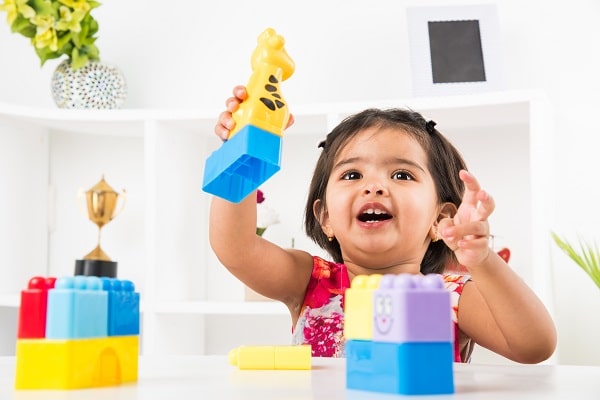In the minds of many, learning is primarily associated with educational institutions – schools, colleges, universities, etc. But in reality, the learning process begins at birth and never ends.
Unfortunately, for many of us, it is somewhat clouded by negative experiences received both in the mentioned educational institutions and at home. After all, it is at home that children begin to consciously learn. They learn language and arithmetic skills, self-control, and understanding of the world in general.
First of all, parents should remember that a kid is an individual, unique from birth. Therefore, what is good for one kid may not be acceptable for another. Parents observe the behavior and the habits of their kid from the very day one is born. Together with it, they find the most favorable methods of upbringing. For many parents, the toughest part starts together with the first day at school.
However, some believe that nowadays, the school is responsible for the kid’s upbringing and education because the school employs specialists whose duty is to teach. And the parents’ job is to provide tools for studying, like the paper writing service EssayPro, buy computers and books, and pay for extracurriculars. But who achieves the greatest success in education? These are the children whose parents realize that they should take an active part in the educational process.
They know what to do to help their kid get the most out of school. And if they don’t, they want to learn parenting and learning skills. If a kid sees the active participation of parents in learning and their interest in his or her success, they try to work even harder.
Show Interest
It is very important for a parent to show interest in school, classes, and in every school day. Chat informally with your kid after the school day. Always ask your kid: “What did you learn at school today? What was the most interesting?” Know your child’s classmates and provide opportunities for children to socialize after school.
Don’ts:
- do not berate them for any mistakes and failures that worry them the most
- do not add worries by comparing them to other kids.
Dos:
- develop the habit of listening carefully to your kid
- let them discuss with you all the problems that have arisen at school
- draw conclusions and reflect on events together.
Pay Attention
If you see that your child has some difficulties in school, make sure you don’t miss the signs of learning disorders. Test them for dysgraphia, dyslexia, and dyscalculia. It is crucial to find out such things as early as possible so that they can be managed and accommodated.
And remember – those diagnoses are not a sentence neither for the children who have it nor for their parents.
Encourage Curiosity
Every now and then, try answering, “I don’t know. How do we find out? Let’s find the answer together!” Then go to the encyclopedia or Google it.
If the kid is bored in some lesson, the novelty of the subject may be to blame. The kid cannot connect new information with what they already know. Awaken their interest in this field. Give the kid an interesting book on a relevant topic. Take them to a museum. Find a suitable popular science film. The more a kid learns about something, the stronger interest this subject will arouse in them.
The kid has shown an interest in something – give them an interesting source of relevant knowledge and time to familiarize themselves with it. Clubs, games, libraries, master classes, etc. Provide access to cognitive resources as much as possible – to the best of your ability.
The more diverse the kid’s interests are, the better. The subject of interest can change very often. The main thing is that curiosity does not disappear.
The kid will systematize the results of seemingly chaotic wanderings in the sea of information over time. After all, the studying of history, the basics of natural and exact sciences, languages, and literature at school will create a kind of backbone for “stringing” the ideas acquired by the child in an independent search.
Praise The Child If They Deserve It
Show the kid that they are capable and that you believe in their abilities. New achievements will not be long to come. Try to teach your child to believe in themselves. Remove negative adjectives from your communication with your kid. Otherwise, they may believe you.
Do not scold your kid for bad grades because it creates a fear of making mistakes. After that, the kid will be afraid to tell you about their failures.
Nutrition
What is another basic thing that parents can take care of? A diet that contains all the necessary elements for the child.
Make sure that the child eats a nourishing and high-quality breakfast every morning, takes healthy snacks to school and drinks enough water. Yes, well-being in this area greatly affects mood and motivation!
Set The Example
It is important to support the kid to study by your example. Show that you enjoy reading books and learning new things. The same applies to self-talk. If they hear you calling yourself negative things, they will mimic your behavior and if you praise your wins, they will learn to do the same.
Everyone Has a Superpower
The most important thing is the love for children and understanding that each kid has their own pace of learning and their own set of abilities. You don’t have to deal with your child in some common way. Every kid has their own superpower. And when you understand that, it is easier to cooperate and help the child discover themselves.
Use Games
If your child is not too interested in learning, offer them some engaging tasks. That is called gameplay. Let it be a not too difficult but not too simple game that offers interesting opportunities and achievements. It will encourage the kid not to give up and go further.
Useful advice: what should parents constantly do?
- offer children small quests
- challenge them
- reward them for victories
- celebrate small achievements
- give them a chance to prove themselves again and again.
Remember, in the game, all losses and victories are temporary because the game itself never ends. You should walk the extra mile to explain this well to your kid.
Schedule
For a kid, the need to learn new skills and solve complex tasks in a noisy student hall is a leap into the unknown every time! So, your task as parents is to create a “quiet harbor” for your kid, where they can rest from their cognitive adventures and emotionally intense communication with classmates.
Children require both a physical and a psychologically safe environment. And this means:
- Maintain a stable and clear daily routine. Children need sleep, predictability in life, and a clear plan of action for every day.
- Entrust the kid with a moderate amount of household duties every day. They will feel useful and responsible for something, which is an important feeling for young people.
Summary
Can parents avoid mistakes and help their kids learn by making the process easier and more enjoyable? Of course, especially after reading this article. And the tips we have collected here will definitely come in handy.










![Home Renovation Guide [2025]](/app/uploads/2021/04/design-hacks-1-378x300.jpg)
